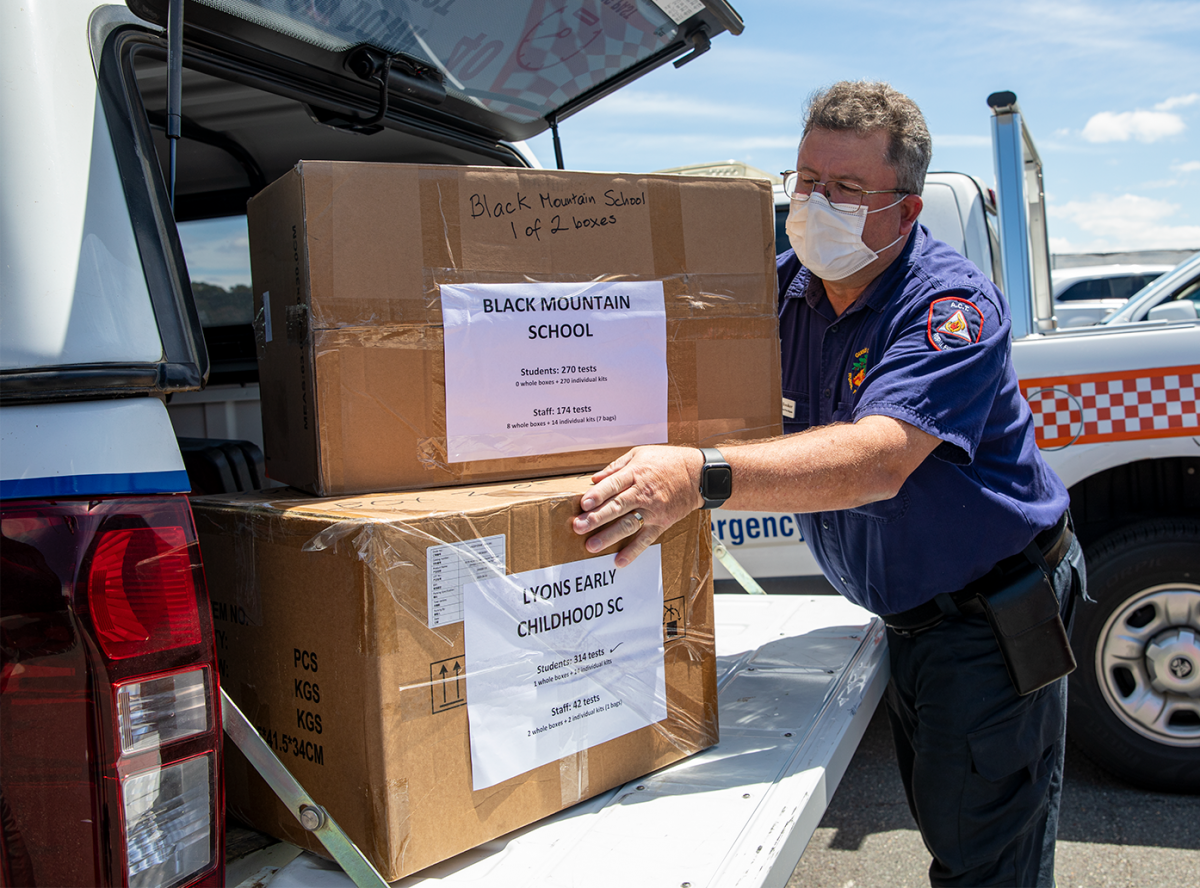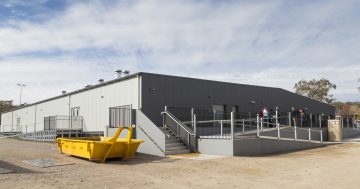
Almost 300,000 rapid antigen testing kids are being distributed to ACT public school students. Photo: ACT Government.
ACT public school students up to Year 9 will be given five rapid antigen tests for use over the holiday season as infections continue to increase locally.
The ACT Government last week upped the ante on its RAT delivery program to hand out more than 40,000 bundles of the testing kits to students.
Between these deliveries and the additional stock being handed out to schools for use in Term One next year, the government will have distributed 268,000 testing kits.
It’s unclear exactly how many RATs have been provided to students since the pandemic began.
Both nasal and saliva tests are being handed out.
Students are being reminded they are not required to use a RAT unless they have COVID-19 symptoms.
For the majority of this year, individual schools had their own supplies of RATs which students and teachers could access as and when required.
Those arrangements are on top of the additional stock now being delivered to the community.
Before this, the major RAT rollout at the start of the year posed some logistical challenges that parents and school communities had to manage.
A spokesperson for the ACT Education Directorate stressed this RAT rollout was not because COVID-19 infections are higher in schools than in the general community; instead, cases continue to “be in proportion with case numbers reported in the community generally”.
Last week, the Territory reported 2239 infections, and as of Thursday (1 December), there were 33 people in hospital.
Cases have been increasing steadily since early October.
BA.5 remains the most frequently detected Omicron variant, comprising almost half of all COVID-19 infections in the ACT.
Subvariants of BA.5, as well as subvariants of BA.4 and other subvariants, are also being detected, although on a smaller scale.
Epidemiologists have stressed the difficulty of modelling the pandemic at this point.
That’s due to the variance across the population with different vaccination and previous vaccination statuses – as well as the fact there are so many different subvariants circulating.
Also, anecdotally at least, not everyone is reporting their positive RAT results.
Both Professor Adrian Esterman of the University of South Australia and Professor Peter Collignon of the Australian National University told Region they aren’t expecting a similar Christmas to last year when caseloads surged around the country.
They believe this wave is unlikely to be as large as previous ones experienced this year.
They also agreed it wasn’t time for major public health interventions but encouraged people to consider hosting barbecues outside rather than indoor dinners and mask-wearing.
Health Minister Rachel Stephen-Smith has echoed these comments, and urged Canberrans to undertake a rapid antigen test before attending a large gathering.
“I’m really hoping Christmas isn’t too disrupted, but again I’m encouraging people to think about how they are keeping their loved ones safe,” she said last month.
“You don’t want to be the person who has given COVID-19 to everyone else.”














